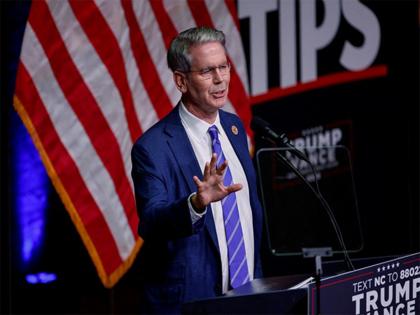'Train US workers, then go home': US Treasury Secy clarifies Trump's softened stance on H-1B visa reform
By ANI | Updated: November 13, 2025 12:05 IST2025-11-13T12:04:17+5:302025-11-13T12:05:10+5:30
Washington DC [US], November 13 : US Treasury Secretary Scott Bessent clarified President Donald Trump's recent comments on the ...

'Train US workers, then go home': US Treasury Secy clarifies Trump's softened stance on H-1B visa reform
Washington DC [US], November 13 : US Treasury Secretary Scott Bessent clarified President Donald Trump's recent comments on the H-1B visa reforms, reflecting a more pragmatic approach by the administration on the matter, emphasising that the President's vision is to use 'skilled foreign talent' to train American workers before returning to their respective countries.
During an interview with Fox News on Wednesday (local time), Bessent described the strategy as a "home run", emphasising that it aligns with Trump's vision to onshore industries like semiconductors without disrupting long-term US employment goals.
Bessent noted that while the administration remains committed to prioritising American jobs, it recognises the immediate need for specialised overseas expertise in sectors like defence, shipbuilding, and semiconductors.
"For 20, 30 years, we have offshored precision manufacturing jobs. And the President's point here is we can't snap our fingers and say 'you're going to learn how to build ships overnight.' We want to bring the semiconductor industry back to the US," Bessent said.
"The President's vision here is to bring in overseas workers, who have the skills, for three, five, or seven years to train the US workers; then they can go home, and the US workers fully take over," he added.
Bessent's remarks come a day after Trump's interview with Fox News host Laura Ingraham, where the President appeared to have softened his stance on his administration's aggressive push on H-1B visa reforms, acknowledging the need to import specialised foreign talent to fill critical roles in the American workforce.
During the interview on Tuesday, Trump defended the value of skilled immigrant workers, arguing that the US cannot simply repurpose long-term unemployed Americans for complex roles in manufacturing and defence without extensive training.
The US President further noted that while he supports raising wages for American workers, the US must still "bring this talent" to maintain its industrial and technological edge.
"I agree, but you also have to bring this talent," Trump said when asked whether H-1B visa reform would be a major priority for his administration.
Bessent, during his interview, further stated that the plan is not about long-term dependence on foreign talent but rather about knowledge transfer and workforce development.
"This idea of overseas partners coming in, teaching American workers, then returning home - that's a home run," the Treasury Secretary added.
Earlier in September, Trump signed a proclamation that triggered a major overhaul of the H-1B visa petition.
According to the proclamation, there will now be a USD 100,000 fee for new H-1B visa applications, a sharp increase from the previous level of about USD 1,500.
The US State Department later clarified that the new fee requirement applies only to individuals or companies filing new H-1B petitions or entering the H-1B lottery after September 21.
Current visa holders and petitions submitted before that date remain unaffected. Under the proclamation, a USD 100,000 payment must accompany every new H-1B visa petition filed after the deadline, including those submitted for entries in the 2026 lottery.
When countered by Ingraham during his interview that the US has "plenty of talented people," Trump stated, "No, you don't. There are certain skills you don't have, and people have to learn them. You can't take people off the unemployment line and say, 'I'm going to put you into a factory where we're going to make missiles.'"
He emphasised that such industries require specialised expertise that untrained or long-term unemployed workers cannot immediately fill.
Bessent's comments reaffirm that the US administration's evolving visa policy aims not to close doors but to strategically leverage global expertise to strengthen domestic industries and create a self-sustaining American workforce.
Disclaimer: This post has been auto-published from an agency feed without any modifications to the text and has not been reviewed by an editor
Open in app